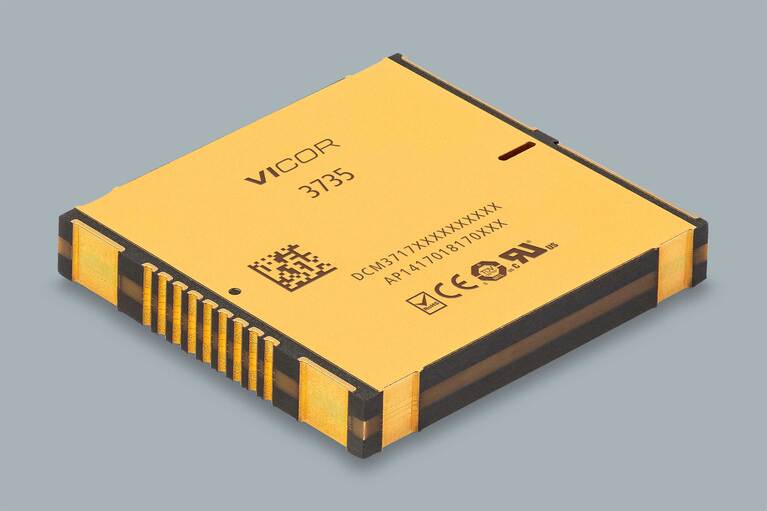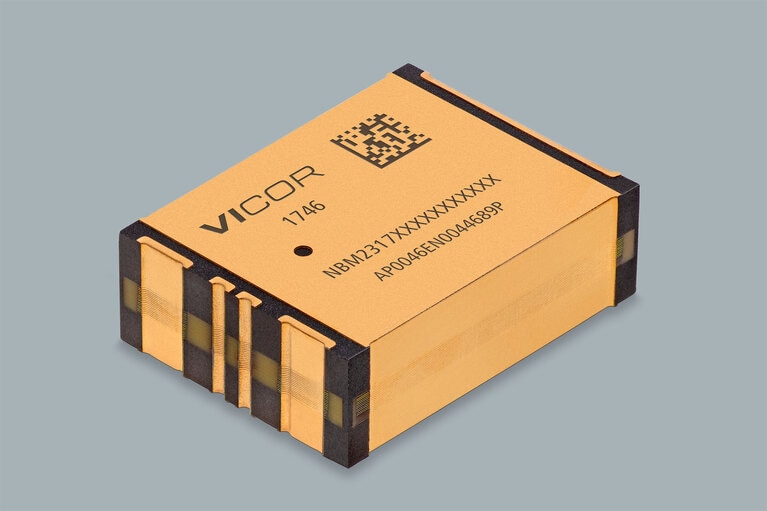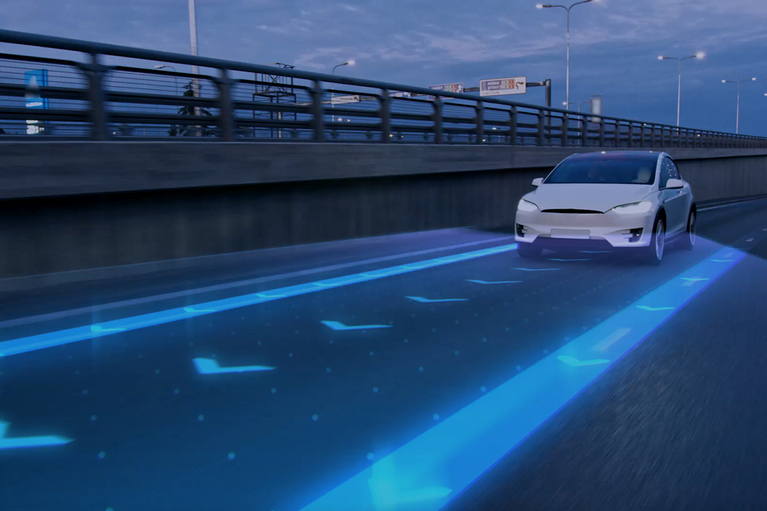
Compact and lightweight

Passive cooling

Scalable across platforms

Flexible placement in the vehicle
Bridging 48V and 12V in zonal architectures

Up to 2 kilowatts of power in a small space
Vicor high performance power modules require dramatically less space than traditional discrete power solutions. This allows for flexible placement of power conversion within the vehicle where the alternatives simply would not fit.
Scalable power architecture
By adopting the modular approach, easily scale power to meet requirements by simply adding another module or swapping for a different module. This allows for the same power architecture to be deployed across vehicle platforms.
Simple thermal management
The low heat dissipation and planer surface of power modules allows for passive cooling instead of liquid cooling, a significant weight and complexity gain.
Easy to implement redundancy
It’s faster and easier to incorporate duplicate power modules than to undergo the complexity of designing-in redundancy within a discrete system.
Tailored solutions
Our team of engineers collaborates with customers to tailor our modules to support specific needs and to architect new, efficient, modular power delivery networks that take full advantage of our modules. Using just a few power modules, possible solutions support hundreds of unique power network designs to achieving the best mix of power, weight, and package space.
The Power Delivery Network
Providing power to the growing number of loads in a 48V zonal architecture requires high-density modules, since larger and bulkier discrete solutions add much more bulk and weight. Compact power modules can be located close to the points of load, in tight spaces where alternatives would never fit. The Vicor NBM2317 provides 48V to 12V fixed ratio conversion to power legacy 12V loads at 98% efficiency. When regulation is required, the Vicor DCM3735 supports 12V loads and the Vicor PRM3735 supports 48V loads. With unprecedented density and no need for liquid cooling, these converters can be deployed throughout the vehicle, creating a much more efficient 48V power delivery network.


AVAILABLE
Non-isolated regulated
Input: 35 – 58V
Output: 8 – 16V
Power: 2kW
Peak efficiency: 96.5%
36.7 x 35.4 x 5.2mm

UPCOMING
Non-isolated
Input: 40 – 60V
Output: 10 – 15V
Power: 1kW
Peak efficiency: 97.9%
23 x 17 x 5.2mm

AVAILABLE
Non-isolated regulated
Input: 31 – 58V
Output: 36 – 54V
Power: 2.5kW
Peak efficiency: 99.2%
36.6 x 35.4 x 7.4mm
Take full advantage of high density power conversion
When you engage with us, Vicor engineers will help you to architect a solution that best optimizes power, weight, and package space. We can:
- Help you to choose the most appropriate high performance power modules for your design and help you to optimize your board layout.
- Reconfigure or expand the capabilities our products to better suit your needs, such as increasing input range, adjusting current limits, and setting regulation points
- Work with you to determine the most efficient way to package our modules, giving you greater flexibility in placement in the vehicle.
- Develop a complete power solution using our modules that far exceeds the efficiency of a discrete system and that you can implement quickly.





